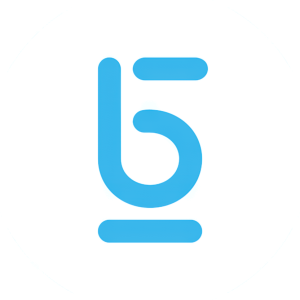Berkeley Lights and the Jaime Leandro Foundation Announce the Discovery, Functional Characterization, and Recovery of a Patient-Derived T cell Receptor Sequence Against a Cancer Neoantigen
Berkeley Lights (Nasdaq: BLI) announced a breakthrough in cancer treatment through a collaboration with the Jaime Leandro Foundation. They discovered a patient-derived T cell receptor sequence that effectively targets a cancer neoantigen, leading to complete remission in a patient with advanced pancreatic cancer. Utilizing the Berkeley Lights Beacon® system, the team achieved rapid functional validation of T cells, which enhances the process of developing personalized cancer vaccines. This advancement signifies a major step forward in immunotherapy and personalized medicine.
- Discovery of a patient-derived T cell receptor effective against a cancer neoantigen.
- Complete remission achieved in a pancreatic cancer patient.
- Rapid functional validation of T cells via the Berkeley Lights Beacon® system.
- Potential for accelerated development of personalized cancer vaccines.
- None.
Insights
Analyzing...
EMERYVILLE, Calif., Aug. 4, 2022 /PRNewswire/ -- Berkeley Lights, Inc. (Nasdaq: BLI), a leader in digital cell biology, and the Jaime Leandro Foundation for Therapeutic Cancer Vaccines (JLF), today announced the discovery, functional characterization, and recovery of a patient-derived T cell receptor sequence against a cancer neoantigen.
Together, Berkeley Lights and JLF were able to measure and identify T cells that were reactive against peptides used in a cancer vaccine that was administered to a patient to successfully stimulate an immune response against their advanced-stage pancreatic cancer leading to complete remission. The patient was treated under the supervision of physicians at Washington University in St. Louis.
The unprecedented speed of these results relied on the Berkeley Lights Beacon® system. Applying the cell therapy development workflow, thousands of phenotypic measurements of single T cells were performed within one week. These measurements identified T cells that were cytotoxic and capable of secreting cytokines in response to antigen encounter, which were therefore predicted to be functional and subsequently sequenced at a single cell level. Cloning these T cell receptor sequences and expressing them in naïve T cells enabled functional validation against an antigen of interest. This function-first measurement capability of the Berkeley Lights platform is a significant differentiator compared to frequency-based assessments of TCRs which result in functional validation bottlenecks, adding to a growing number of highly differentiated service offerings at Berkeley Lights.
"This unique workflow combines Berkeley Lights' core strength of functional analysis of live cells, along with the use of the new Biofoundry services organization to help customers accelerate their therapeutic discoveries in a faster, more scalable way," said Siddhartha Kadia, Ph.D., chief executive officer of Berkeley Lights. "We look forward to continuing to work with JLF and their partners in evaluating immune response to cancer vaccines, mapping TCRs to neoantigens and ultimately supporting this important work to save patient lives."
The JLF has the mission of providing personalized neoantigen cancer vaccines for appropriate patients who have advanced cancers and seek compassionate use treatment.
"The data is exceedingly clear that, together, we have successfully identified a functional, patient- and antigen-specific TCR validating both our treatment methodology and the Berkeley Lights technology for personalized cancer vaccines compared to conventional approaches," said William Hoos, president of the Jaime Leandro Foundation for Therapeutic Cancer Vaccines. "This is an exciting advancement in our mission."
From the clinical team, Dr. William Gillanders, professor of surgery at Washington University School of Medicine, commented:
"The Berkeley Lights technology can take immune monitoring to the next level by evaluating multiple quantitative measurements of live cell behavior and recover that cell for molecular characterization. This is going to be tremendously useful for the field by providing a much deeper dataset to further understand cancer vaccines and predict clinical outcomes as well as to serve the growing need of combination therapies where TCR-T can be utilized."
1Daniel A King, Amber R Smith, Gino Pineda, et al. Complete remission in a patient with widely metastatic HER2-amplified pancreatic adenocarcinoma following multimodal therapy informed by tumor sequencing and organoid profiling. medRxiv 2021.12.16.21267326; doi: https://doi.org/10.1101/2021.12.16.21267326
Berkeley Lights is a leading digital cell biology company focused on enabling and accelerating the rapid development and commercialization of biotherapeutics and other cell-based products for our customers. The Berkeley Lights Platform captures deep phenotypic, functional, and genotypic information for thousands of single cells in parallel and can also deliver the live biology customers desire in the form of the best cells. Our platform is a fully integrated, end-to-end solution, comprising proprietary consumables, including our OptoSelect™ chips and reagent kits, advanced automation systems, and application software. We developed the Berkeley Lights Platform to provide the most advanced environment for rapid functional characterization of single cells at scale, the goal of which is to establish an industry standard for our customers throughout their cell-based product value chain.
Berkeley Lights' Beacon® and Lightning® systems and Culture Station™ instrument are FOR RESEARCH USE ONLY. Not for use in diagnostic procedures.
To the extent that statements contained in this press release are not descriptions of historical facts regarding Berkeley Lights or its products, they are forward-looking statements reflecting the current beliefs and expectations of management. Such forward-looking statements involve substantial known and unknown risks and uncertainties that relate to future events, and actual results and product performance could differ significantly from those expressed or implied by the forward-looking statements. Berkeley Lights undertakes no obligation to update or revise any forward-looking statements. For a further description of the risks and uncertainties relating to the Company's growth and continual evolution see the statements in the "Risk Factors" sections, and elsewhere, in our filings with the U.S. Securities and Exchange Commission.
![]() View original content to download multimedia:https://www.prnewswire.com/news-releases/berkeley-lights-and-the-jaime-leandro-foundation-announce-the-discovery-functional-characterization-and-recovery-of-a-patient-derived-t-cell-receptor-sequence-against-a-cancer-neoantigen-301600060.html
View original content to download multimedia:https://www.prnewswire.com/news-releases/berkeley-lights-and-the-jaime-leandro-foundation-announce-the-discovery-functional-characterization-and-recovery-of-a-patient-derived-t-cell-receptor-sequence-against-a-cancer-neoantigen-301600060.html
SOURCE Berkeley Lights, Inc.








